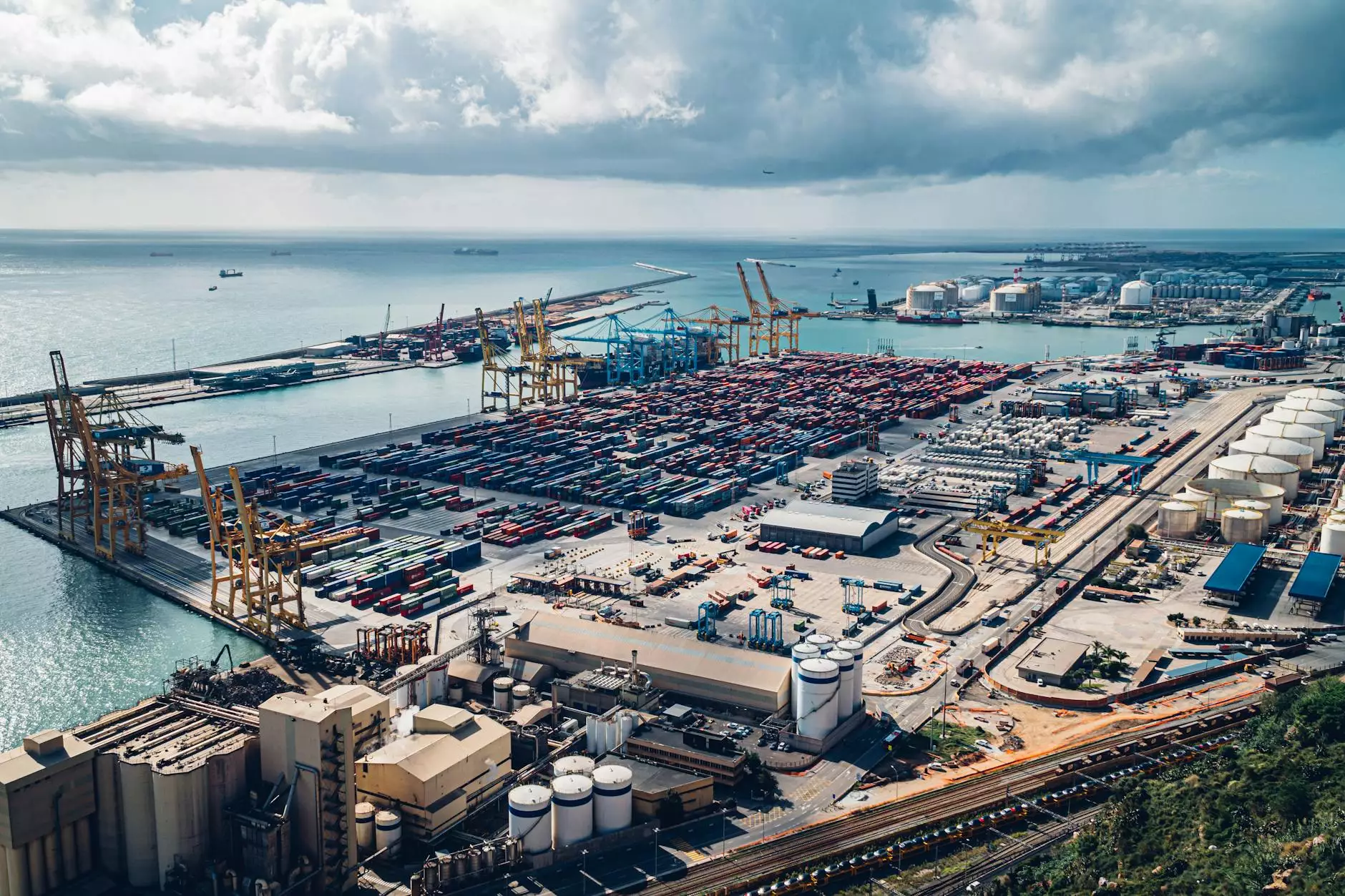Understanding Freight Rate Quotes: A Comprehensive Guide for Businesses

In the dynamic world of logistics and transportation, freight rate quotes play an essential role in determining the cost efficiency of moving goods. Whether you are a small business owner or a large corporation, understanding these quotes is crucial for making informed decisions. This article will delve deep into what freight rate quotes are, how they work, and their significance in the shipping process.
What Are Freight Rate Quotes?
Freight rate quotes are estimates provided by shipping companies outlining the expected charges for transporting goods from one location to another. These rates can vary based on several factors, including:
- Distance: The further the goods must travel, the higher the rate may be.
- Weight: Heavier shipments generally incur higher costs due to the increased resources required.
- Dimensions: The size of the shipment can affect how much space it occupies during transport.
- Mode of Transport: Choosing between air, sea, land, or rail can significantly influence rates.
- Value of Goods: Higher-value items may attract additional insurance fees.
- Special Handling Requirements: Fragile or hazardous goods might attract surcharges due to specific handling needs.
The Importance of Obtaining Accurate Freight Rate Quotes
Accurate freight rate quotes are vital for budgetary planning and operational efficiency. Here’s why obtaining these quotes is essential:
Financial Planning
Having a clear understanding of shipping costs helps businesses allocate budgets effectively. Accurate quotes allow for predictions of overall shipping costs, which aids in pricing products competitively while ensuring profitability.
Enhanced Decision-Making
With reliable freight rate quotes, businesses can make strategic decisions regarding their supply chain. This may involve choosing between different carriers or modes of transport based on cost, speed, and reliability.
Improved Negotiation Leverage
When you request freight rate quotes from multiple providers, you gather data that can empower your negotiation capabilities. You can leverage competitive pricing against one another, potentially securing better terms and rates.
How to Request Freight Rate Quotes
Requesting freight rate quotes might seem daunting, but it involves a systematic approach. Follow these steps for an effective quotation process:
Step 1: Gather Shipment Details
Before reaching out to carriers, compile all relevant information regarding your shipment:
- Origin and Destination: Specify the shipping locations including any special handling points.
- Weight and Dimensions: Provide accurate measurements to avoid unexpected costs.
- Type of Goods: Include details about the items being shipped, including packaging and special requirements.
- Desired Shipping date: Specify when you need the shipment to be delivered.
Step 2: Find Potential Carriers
Research various shipping companies that can cater to your needs. Evaluate their reputation, service offerings, and customer feedback before making contact.
Step 3: Request Quotes
Reach out with the compiled information and request freight rate quotes from multiple carriers. Many companies provide online tools for instant quotations, while others may require direct communication.
Step 4: Compare and Analyze
Once you receive your quotes, make sure to compare them carefully. Look beyond just the price; consider the services offered, insurance options, and estimated delivery times.
Factors Influencing Freight Rates
Determining freight rates is more complex than just comparing numbers. Several factors can influence the rates you receive:
Market Demand
Freight rates can fluctuate based on market conditions. During peak seasons or economic booms, rates may rise due to increased demand for shipping services.
Fuel Costs
The cost of fuel is a significant factor in freight shipping. When prices go up, shipping companies typically pass those costs onto customers through fuel surcharges.
Carrier Capacity
Availability of space on a carrier also plays a role. Limited capacity can lead to higher freight rates initially, especially during high-demand periods.
Regulatory Compliance
Changes in trade regulations or tariffs can affect costs dramatically. Staying updated on such adjustments helps in anticipating changes in freight rates.
Types of Freight Services
Understanding the types of freight services available can also aid in making informed decisions. Here are some common shipping methods:
Less-than-Truckload (LTL)
This method is ideal for shipments that do not require a full truckload. Businesses can save on costs by sharing truck space with other shippers.
Full Truckload (FTL)
For larger shipments, FTL shipping charges a flat rate for the entire truck. This method is faster and offers exclusive use of the vehicle.
Air Freight
Air freight is the quickest option for shipping goods, but it comes at a premium cost. It is best suited for high-value and time-sensitive items.
Ocean Freight
Ocean freight is typically used for transporting large quantities of goods over long distances. It is cost-effective for bulk shipping but involves longer transit times.
Intermodal Shipping
This method combines multiple modes of transport, utilizing trucks, trains, and ships to optimize costs and efficiency.
The Role of Shipping Centers
Shipping centers play a critical role in the logistics industry. They serve as hubs for coordination and management of freight movement. Here are some key aspects:
Infrastructure and Resources
Shipping centers are strategically located to facilitate efficient transportation of goods. Access to major highways, railways, and ports allows for quick transfers.
Technology Integration
Modern shipping centers employ advanced technology for tracking and managing shipments, enhancing efficiency and reducing errors.
Consultation Services
Many shipping centers also offer business consulting services to help companies optimize their logistics and supply chain processes.
Business Consulting in Freight Management
Business consulting in the freight industry focuses on helping companies streamline operations and reduce shipping costs. Here are key consulting services:
- Cost Analysis: Consultants can perform a thorough analysis of your shipping costs and identify areas for savings.
- Process Improvement: By evaluating existing processes, consultants can recommend efficiencies to enhance operational workflow.
- Carrier Management: Businesses often need assistance in negotiating terms and managing relationships with carriers.
- Risk Management: Experts can provide strategies for mitigating risks associated with shipping operations.
Vehicle Shipping: Special Considerations
When it comes to vehicle shipping, specific factors come into play. Transporting vehicles requires a different approach due to their size, value, and the potential for damage. Key considerations include:
Type of Vehicle
The type of vehicle being shipped can influence the cost and method of transport. For example, luxury vehicles may require enclosed transport to protect them from the elements.
Shipping Method
Similar to freight, vehicle shipping can be accomplished via open or enclosed transport, each carrying its own risks and costs.
Insurance Coverage
Securing adequate insurance coverage is vital when shipping vehicles. Ensure you understand the terms and are protected against potential damages.
Conclusion: Making Informed Choices with Freight Rate Quotes
In summary, freight rate quotes are invaluable tools for businesses in the shipping sector. Understanding them can significantly enhance financial planning, decision-making, and operational efficiency. By considering various influencing factors, types of services, and the role of shipping centers, businesses can navigate the complexities of logistics with confidence.
With the right information and strategic planning, your business will be well-equipped to make the most of freight rate quotes and optimize your shipping processes efficiently.









